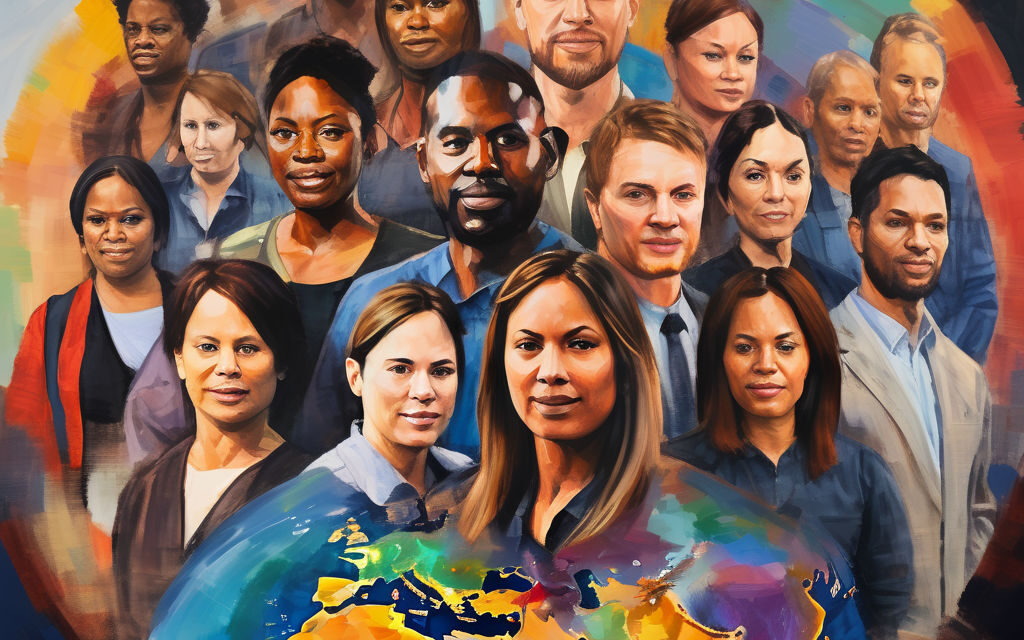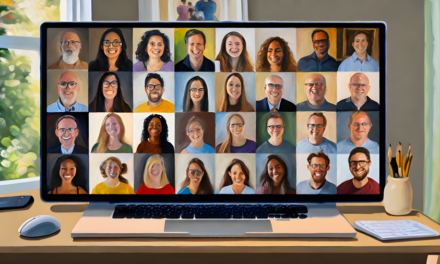Embracing linguistic diversity is imperative in the increasingly globalised workforce of today.
While English is considered the current global lingua franca for business, it’s crucial that businesses recognise the invaluable asset that a diverse array of languages and communication styles can bring to the workforce. Employers that do so and ensure an inclusive experience for all employees – regardless of native language – will thrive.
As multinational organisations navigate global teams, understanding and accommodating linguistic diversity in the workplace is crucial for effective communication and boosting productivity. However, merely acknowledging this diversity is no longer sufficient; today’s organisations should aim to actively leverage it to drive global growth and innovation. By strategically embracing linguistic diversity and multilingualism alongside cutting-edge technology, companies can create an inclusive environment where every voice is heard, and every individual’s unique perspective contributes to broader business success.
So, how can companies harness the power of greater linguistic diversity to enhance productivity and business outcomes?
Cultivating an international perspective
A global mindset is essential for businesses seeking growth. Research from G-P shows that despite pressures of economic uncertainty and talent shortages, a majority of C-suite leaders (73%) are prioritising growth and are increasingly looking beyond borders to access the best talent – with 81% already actively engaged in global recruitment.
However, this research also found that while 79% of employees aspire to work for global companies, nearly half (49%) question their company’s readiness for global expansion citing concerns about effective cross-border collaboration, as well as language and cultural barriers that might arise.
Cross-cultural communication and linguistic diversity are interconnected concepts that require an understanding of language diversity and cultural differences to foster effective communication and collaboration across diverse cultural contexts. They’re vital for successfully managing globally distributed teams, facilitating clear communication, alignment on goals, and fostering transparency and trust. Therefore, addressing any concerns and cultivating an environment where the workforce feels valued and empowered is essential in our global economy.
Addressing linguistic challenges beyond geographical boundaries
Addressing linguistic barriers is important for promoting collaboration among multicultural teams, as research suggests that diverse teams are more adept at tackling complex problems and driving business success. However, the dominance of certain languages, such as English, can create challenges for employees whose native language differs and may hinder access to a diverse global talent pool, limiting innovation and growth for businesses.
Multinational companies can overcome these challenges by implementing targeted strategies to harness the benefits of linguistic diversity. These could include:
Provide language training
Provide language training opportunities for employees to learn easier ways to communicate, particularly in a professional environment. For example, non-native speakers might want to upskill in English, but equally, English speakers might want to learn an additional language to communicate better with their colleagues overseas.
Discourage jargon
Encourage employees to avoid using complicated and unnecessary jargon, particularly in company-wide materials. Using clear and straightforward language ensures that messages are easily translated and understood by all team members, regardless of their native language or cultural background.
Respect cultural diversity
Facilitate cross-cultural interactions through team-building activities or global exchange programs to break down barriers among employees from different cultural backgrounds. Fostering mutual understanding and respect for cultural differences can help reduce any potential clashes and promote a harmonious work environment.
By adopting these proactive measures, organisations can enhance cross-cultural collaboration, leverage diverse perspectives for innovation and position themselves as magnets for top talent. Ultimately, these strategies lay the groundwork for an inclusive workplace, heightened employee satisfaction and sustainable business growth.
Embracing tech for inclusive global collaboration
Integrating new technologies and tools like AI is essential for supporting cross-cultural business strategies and initiatives and enhancing the global employee experience. According to new AI research from G-P, two-thirds of business leaders believe that AI is critical for operating and remaining competitive across global markets – with 40% believing AI is instrumental in helping overcome any cultural and language barriers within their companies.
By prioritising cultural diversity and leveraging technology, companies can build a workplace where every voice is heard and every individual can contribute to wider business success. Embracing multilingualism, alongside new and evolving technologies, makes leveraging workplace diversity for global growth possible.
Celebrating multilingualism
It’s clear linguistic diversity enriches organisations by fostering varied perspectives, ways of thinking, and creative problem-solving approaches.
Linguistic diversity, and the need to get cross-cultural communication right, should no longer be seen as an optional ‘nice-to-have’ attribute, but as a valuable asset strategically supported by technology that facilitates an enhanced employee experience. This can inherently improve and drive an organisation’s workforce productivity, business performance and outcomes, all of which better positions and propels organisations towards achieving sustainable growth on the global stage.

Laura Maffucci is G-P's Head of HR, overseeing global workforce, talent, and employee experience. She prioritises a people-first approach and values diversity of thought for a healthy workspace. Previously, she held leadership roles in G-P's Global Total Rewards team, progressing from Sr. Director to VP. Before G-P, she led Total Rewards & HRIS at Progress, a tech company, and held roles at Ocean Spray Cranberries, earning an HR Award for Innovation and Creativity in 2016.
With over 20 years in HR, Maffucci has spoken on compensation, employee well-being, and mental health on global and national platforms. She is a strong advocate for employee experience, inclusivity, and the future of work.






